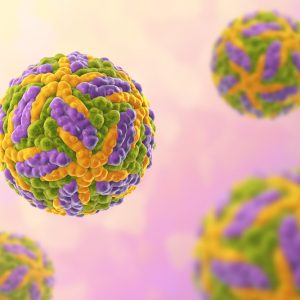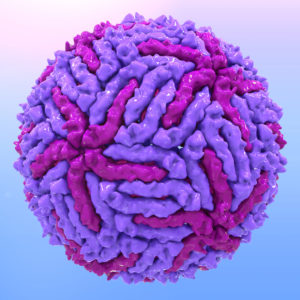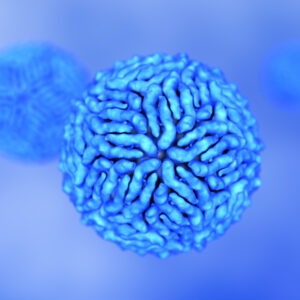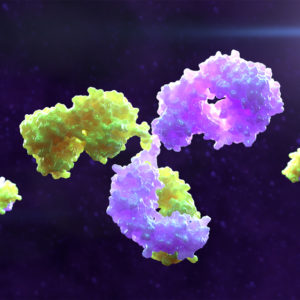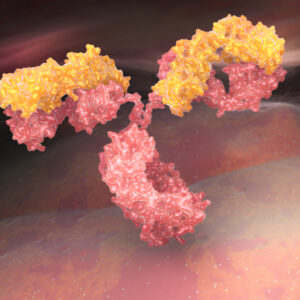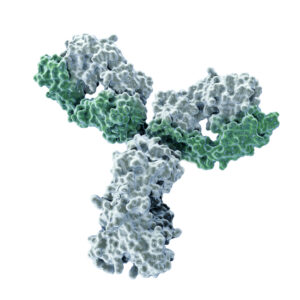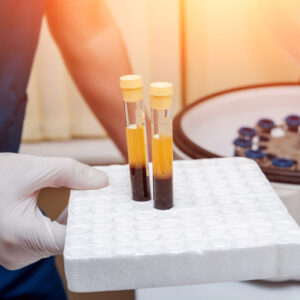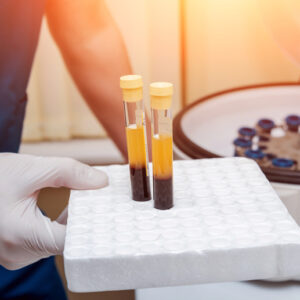Japanese Encephalitis
Japanese encephalitis virus (JEV) is the most significant cause of viral encephalitis in Asia. It is a mosquito-borne flavivirus belonging to the same genus as the Dengue, Yellow Fever and West Nile viruses. The annual incidence of clinical disease varies both across and within endemic countries, ranging from <1 to >10 per 100,000 people or higher during outbreaks. JEV primarily affects children as adults in endemic countries have natural immunity after a childhood infection, though individuals of any age may be affected.
The Native Antigen company has developed mammalian-expressed recombinant JEV NS1 and Envelope proteins, virus-like particles and highly-specific monoclonal antibodies that show no cross-reactivity with other flaviviruses.
Japanese Encephalitis Background
The Japanese encephalitis virus belongs to the genus Flavivirus, of the family Flaviviridae. JEV is also a member of the Japanese encephalitis serology complex, which includes West Nile, St. Louis encephalitis and Murray Valley encephalitis virus. In nature, JEV cycles primarily between water birds and mosquitoes of the Culex species, but pigs can also be infected and act as amplifying hosts. JEV can also be transmitted to incidental hosts, including humans, horses and other mammals.
In Asia, Japanese encephalitis is the leading cause of viral encephalitis in children, with up to 70,000 cases reported annually. In most cases, JEV infection causes mild symptoms, but a small number of cases develop into severe life-threatening encephalitis. The symptoms of JEV infection are like those seen in other conditions that cause severe encephalitis syndrome. In cases presenting with severe encephalitis, mortality rates can be as high as 30%, with survivors developing long term neurological and behavioural complications. Currently, there is no specific antiviral therapy for JEV, though safe and effective licenced vaccines are available (1).
Diagnosis of JEV infection is achieved by serological testing for JEV specific IgM antibodies in the patient’s cerebrospinal fluid or serum. However, cross-reactivity of JEV specific antibodies with other Flaviviruses that co-circulate with JEV, such as Dengue virus, can be a challenge and can prevent accurate diagnosis (2).
References
- WHO Japanese encephalitis Factsheet
- Johnson, B.W. et.al. (2016). Differential Diagnosis of Japanese Encephalitis Virus Infections with the Inbios JE Detect™ and DEN Detect™ MAC-ELISA Kits. Am. J. Trop. Med. Hyg. 94: 820–828.
Japanese Encephalitis Antigens
The Native Antigen Company prepares recombinant JEV NS1 and Envelope proteins and virus-like particles in a proprietary mammalian cell expression system to generate highly pure proteins. Our Japanese Encephalitis virus antigens are properly glycosylated and folded and the JEV NS1 protein is presented in a predominantly hexameric form.
Japanese Encephalitis Antibodies
We have used our recombinant JEV NS1 proteins to raise a panel of specific antibodies to JEV NS1, all of which are highly specific and show no cross-reactivity with NS1 proteins from other flaviviruses, including Dengue, Yellow Fever and West Nile viruses.
Japanese Encephalitis Donor Sera
The Native Antigen Company has prepared donor sera from a controlled group of Japanese encephalitis vaccine recipients which are now available for use as controls in IVD assays, and for vaccine studies.
Questions?
Check out our FAQ section for answers to the most frequently asked questions about our website and company.

